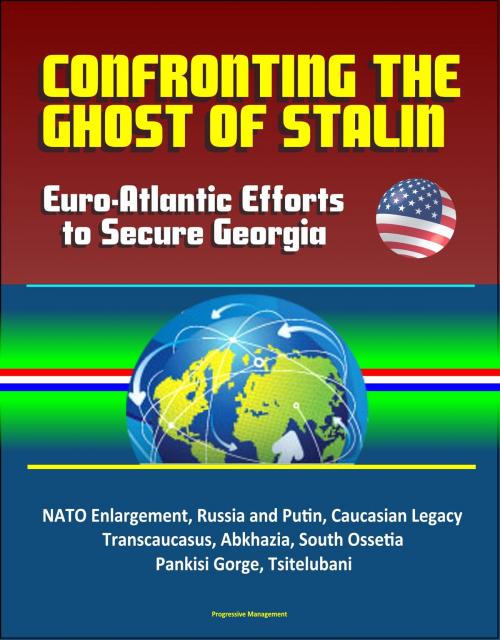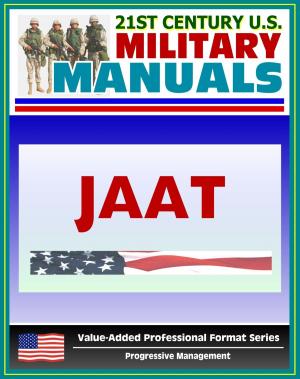Confronting the Ghost of Stalin: Euro-Atlantic Efforts to Secure Georgia - NATO Enlargement, Russia and Putin, Caucasian Legacy, Transcaucasus, Abkhazia, South Ossetia, Pankisi Gorge, Tsitelubani
Nonfiction, History, Asian, Former Soviet Republics, Russia| Author: | Progressive Management | ISBN: | 9781310227721 |
| Publisher: | Progressive Management | Publication: | May 31, 2016 |
| Imprint: | Smashwords Edition | Language: | English |
| Author: | Progressive Management |
| ISBN: | 9781310227721 |
| Publisher: | Progressive Management |
| Publication: | May 31, 2016 |
| Imprint: | Smashwords Edition |
| Language: | English |
This excellent report has been professionally converted for accurate flowing-text e-book format reproduction. Since achieving independence in 1991 with the fall of the Soviet Union, Georgia has become the most westward-oriented state in the Transcaucasus. The government in Tbilisi has departed from two centuries of union with Russia and vigorously pursued NATO membership as an avenue for restoration of its full sovereignty, domestic reform, economic development, and Euro-Atlantic integration. This first objective has been hampered by Russian-backed separatist regimes in Abkhazia and South Ossetia. Moscow has made its view clear that NATO encroachment into the South Caucasus poses a threat to its national security. Through overt threats, economic pressures, diplomatic control of the separatist regions, and covert attacks, the Kremlin has attempted to keep Georgia destabilized and dependent on Russia's good will. Its zero-sum, realist foreign policy opposes the institutional argument of enhancing security by diffusing democratic norms. This thesis will show how the degree to which Western governments are willing to confront coercive activity will largely determine the success or failure of Georgia's transition to a stable democracy.
CHAPTER I - INTRODUCTION * A. THE TIES THAT BIND: RUSSIA'S CAUCASIAN LEGACY * B. TBILISI LOOKS TO THE WEST: A NEW AXIS EMERGING * C. AN INTENSIFYING DEBATE * D. METHODOLOGY AND SOURCES * E. COMPETING THEORIES OF INTERNATIONAL RELATIONS * 1. Stability through State Power: The Realist Perspective * 2. Complex Interdependence: The Neo-Liberal Perspective * CHAPTER II - ABKHAZIA * A. INTRODUCTION: COMPETING NATIONALITIES * B. OLD & NEW SPONSORS: OPPOSING SECURITY OUTLOOKS * 1. Russian Realism * 2. Euro-Atlantic Institutionalism * C. THE HESITANT ROLE OF INTERNATIONAL ORGANIZATIONS * D. CONCLUSION: CONFLICT OR APPEASEMENT? * CHAPTER III - SOUTH OSSETIA * A. INTRODUCTION: NATIONALISM AND IRREDENTISM * B. AGGRESSIVE CONFLICT RESOLUTION: THE AJARAN MODEL * 1. Similarities among the Separatists * 2. The Unique Aspects of Ajaran Autonomy * 3. Lessons of Ajaran Reintegration: The Sanakoev Gambit * C. INTERNATIONAL PRESENCE THROUGH THE OSCE * D. CONCLUSION: DISENGAGEMENT OR COOPERATION? * CHAPTER IV - PANKISI GORGE AND OTHER COERCIVE ENCOUNTERS * A. INTRODUCTION: DISCIPLINING A WAYWARD CHILD * B. PANKISI GORGE: THE DIRECT APPROACH * C. KODORI AND TSITELUBANI: THE COVERT APPROACH * 1. Kodori Gorge: Nighttime Combined Arms Assault * 2. Tsitelubani: Daylight Missile Attack * D. CONCLUSION: CONFRONTING AGGRESSION * CHAPTER V - CONCLUSION * A. THE FUTURE OF RUSSIAN-GEORGIAN RELATIONS * B. INTERESTS AND VALUES * C. THE RUSSIAN-ATLANTIC INTERFACE * LIST OF REFERENCES
This excellent report has been professionally converted for accurate flowing-text e-book format reproduction. Since achieving independence in 1991 with the fall of the Soviet Union, Georgia has become the most westward-oriented state in the Transcaucasus. The government in Tbilisi has departed from two centuries of union with Russia and vigorously pursued NATO membership as an avenue for restoration of its full sovereignty, domestic reform, economic development, and Euro-Atlantic integration. This first objective has been hampered by Russian-backed separatist regimes in Abkhazia and South Ossetia. Moscow has made its view clear that NATO encroachment into the South Caucasus poses a threat to its national security. Through overt threats, economic pressures, diplomatic control of the separatist regions, and covert attacks, the Kremlin has attempted to keep Georgia destabilized and dependent on Russia's good will. Its zero-sum, realist foreign policy opposes the institutional argument of enhancing security by diffusing democratic norms. This thesis will show how the degree to which Western governments are willing to confront coercive activity will largely determine the success or failure of Georgia's transition to a stable democracy.
CHAPTER I - INTRODUCTION * A. THE TIES THAT BIND: RUSSIA'S CAUCASIAN LEGACY * B. TBILISI LOOKS TO THE WEST: A NEW AXIS EMERGING * C. AN INTENSIFYING DEBATE * D. METHODOLOGY AND SOURCES * E. COMPETING THEORIES OF INTERNATIONAL RELATIONS * 1. Stability through State Power: The Realist Perspective * 2. Complex Interdependence: The Neo-Liberal Perspective * CHAPTER II - ABKHAZIA * A. INTRODUCTION: COMPETING NATIONALITIES * B. OLD & NEW SPONSORS: OPPOSING SECURITY OUTLOOKS * 1. Russian Realism * 2. Euro-Atlantic Institutionalism * C. THE HESITANT ROLE OF INTERNATIONAL ORGANIZATIONS * D. CONCLUSION: CONFLICT OR APPEASEMENT? * CHAPTER III - SOUTH OSSETIA * A. INTRODUCTION: NATIONALISM AND IRREDENTISM * B. AGGRESSIVE CONFLICT RESOLUTION: THE AJARAN MODEL * 1. Similarities among the Separatists * 2. The Unique Aspects of Ajaran Autonomy * 3. Lessons of Ajaran Reintegration: The Sanakoev Gambit * C. INTERNATIONAL PRESENCE THROUGH THE OSCE * D. CONCLUSION: DISENGAGEMENT OR COOPERATION? * CHAPTER IV - PANKISI GORGE AND OTHER COERCIVE ENCOUNTERS * A. INTRODUCTION: DISCIPLINING A WAYWARD CHILD * B. PANKISI GORGE: THE DIRECT APPROACH * C. KODORI AND TSITELUBANI: THE COVERT APPROACH * 1. Kodori Gorge: Nighttime Combined Arms Assault * 2. Tsitelubani: Daylight Missile Attack * D. CONCLUSION: CONFRONTING AGGRESSION * CHAPTER V - CONCLUSION * A. THE FUTURE OF RUSSIAN-GEORGIAN RELATIONS * B. INTERESTS AND VALUES * C. THE RUSSIAN-ATLANTIC INTERFACE * LIST OF REFERENCES















